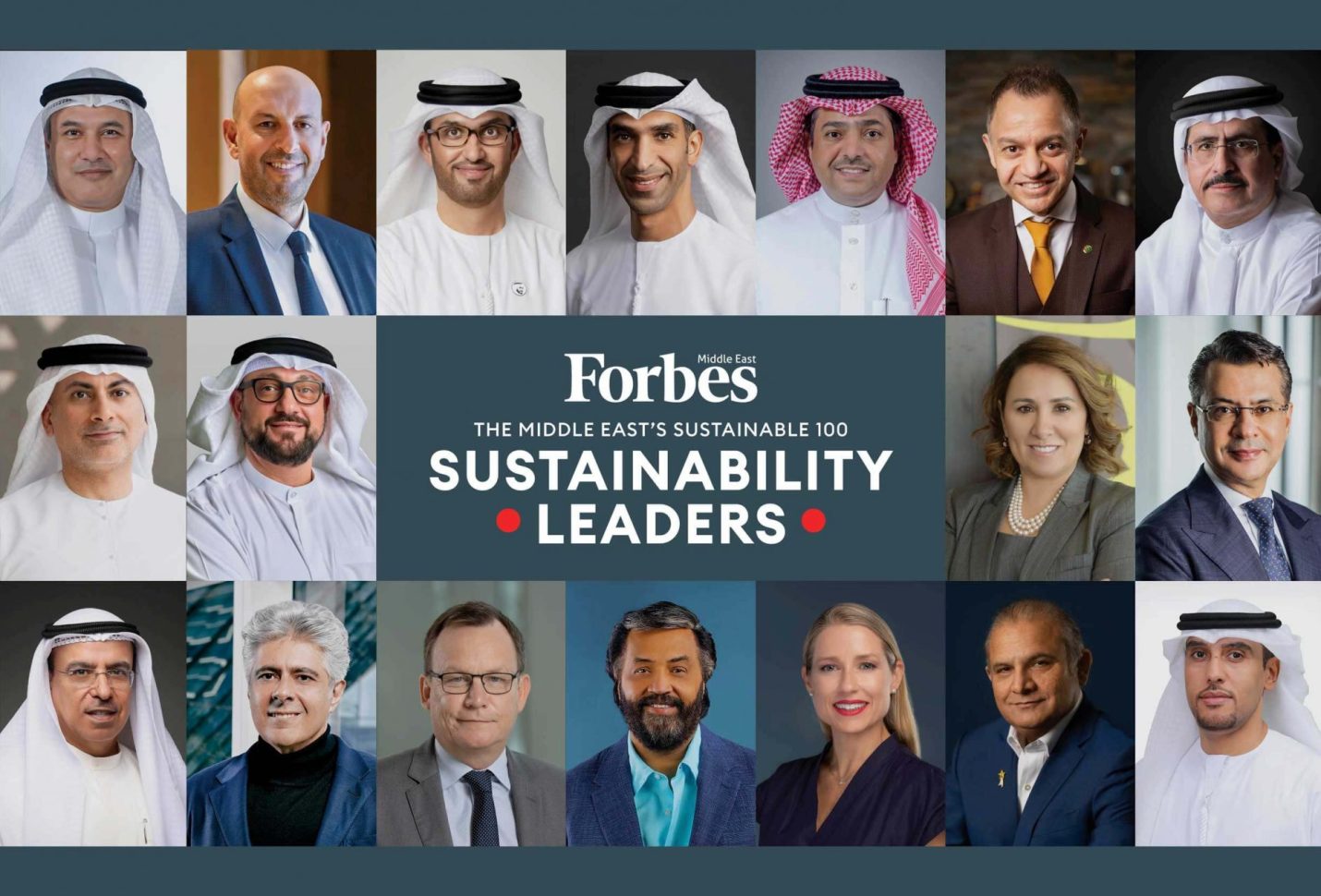
C3S: July 22 hottest day in recent history
July 22 was the hottest day on earth in recent history, according to the Copernicus ...

Environment Minister Yasmine Fouad and four Egyptian companies – Egyptian Company for Solid Waste Recycling under Hisham Sherif, KarmSolar under Ahmed Zahran, Juhayna Food Industries under Seif Thabet, and El Gouna under Mohamed Amer – have been placed on the Forbes Middle East’s 100 Sustainability Leaders list.
Fouad was among the 10 government leaders category. Fouad has more than 20 years of experience working in government, UN organizations, NGOs, and universities. She was the Ministerial Coordinator and Envoy for COP27, which was held in Egypt in 2022. In September 2023, Egypt inaugurated the first edition of the Climate and Environmental Investment Forum, providing an overview of Egypt’s investment ecosystem, green economy opportunities, climate resilience, and the 2050 National Climate Strategy.
The four Egyptian companies on the list are includes in different categories. The Egyptian Company for Solid Waste Recycling and KarmSolar are placed in the Environment Leaders category, while Juhayna Food Industries is in the Food and Agriculture category and El Gouna in the Real Estate and Construction category.
The Egyptian Company for Solid Waste Recycling (ECARU) – established in 1997 – provides solid waste management services. It comprises a biomass business and a municipal solid waste business, through which it produces various products, such as organic compost for the agricultural sector. As well as Egypt, it has projects in Libya, Ethiopia, and Cyprus. Throughout its projects, it supplies alternative solid fuel, operates treatment and disposal facilities, operates landfills, and handles collection and transportation, among other activities.
As for KarmSolar, it was established in 2011. KarmSolar comprises Karm Architecture Lab, and KarmWater among others. In 2022, KarmSolar was the first private company in Egypt to obtain a permit to distribute 10 MW of electricity in Marsa Alam from the national grid. In June 2023, KarmWater announced that its desalination plant at Marsa Shagra will incorporate 30% solar power in its operations from the Marsa Alam Solar Grid.
It is worth also mentioning that Juhayna Food Industries – set up in 1983 – participated in E-Tadweer in 2021, an e-waste initiative launched by Egypt’s Ministry of Environment and the Waste Management Regulation Authority. Over 290 kilograms of damaged electronics were collected from Juhayna headquarters, as well as the company’s subsidiaries Tiba, Al-Enmaa, and Al-Masreya, with the help of Green Waste. This saved 321 kilograms of CO₂ equivalents. Juhayna’s Rayeb plastic caps were replaced with plant-based ones made of sugarcane under Bonsucro standards. In addition, it launched a pilot project to recycle fruit byproducts during the manufacturing process.
As for El Gouna, the company – established in 1989 – is a fully integrated town on the coast of the Red Sea in Egypt. In 2014, it received a UN-sponsored Global Green Award. It has a solar power plant with a capacity of 7MWP as of 2022, a full solid waste management system, a local wastewater treatment plant, an on-site organic farm, and “phase change” temperature regulation materials in all of its properties. It also uses 100% recycled water for irrigation.
The 100-strong Forbes list included 44 companies from the UAE,22 from Saudi Arabia, 10 from Qatar, and 12 global companies with 11 regional offices in the U.A.E. Five entries are from Egypt, three are from Kuwait, and two each are from Bahrain and Oman.
The list also highlighted 10 leaders in government in the Middle East who are using their influence to create positive change.
Providing a comprehensive perspective, the Forbes Middle East’s 100 Sustainability Leaders list has been categorized into 11 key sectors. In each sector, different criteria have been assigned various scoring weights in association with their relevance within that category.
It considered the company size in relation to its positive environmental impact, whether the company has a sustainability/ESG report, levels of preciseness and transparency in the report, Sustainability-related initiatives in 2022/23, levels of collaborations with other companies and sectors to achieve sustainable goals, level of reliance on renewable energy, waste management, water waste reduction, and conservation strategies or initiatives in place, the company’s clear roadmap toward net zero, as well as the amount of sustainable finance facilitated in the Banking and Financial Services sector.
The Middle East is investing in a sustainable transformation, with initiatives underway to advance the harnessing of clean energy sources, innovations in waste management, water conservation, green architecture, and cultivating food sovereignty through smart and sustainable agricultural projects. The financial sector is playing a pivotal role in the region’s sustainability drive as banks and financial institutions promote accessibility through navigating sustainable finance, green bonds, and green sukuks. Even oil and gas companies are playing a central role in investing in alternative renewable energy sources.
July 22 was the hottest day on earth in recent history, according to the Copernicus ...
Google has engaged in partnership with DHL to utilize the DHL Express GoGreen Plus service ...
Mars has announced registering a record 8% greenhouse gas (GHG) emissions reduction against its 2015 ...


اترك تعليقا